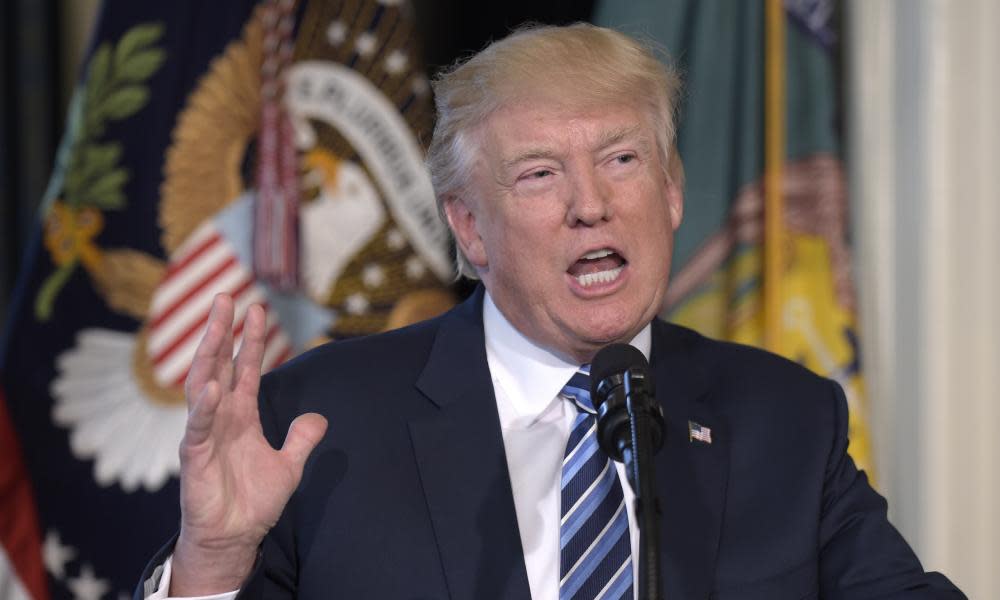Trump expected to unveil proposal for slashing corporate tax rate to 15%

Donald Trump is expected to unveil a proposal for a major corporate tax cut on Wednesday, reportedly involving dramatically cutting corporate tax rates to 15% from 39.6% and ending taxation of corporate profits earned overseas.
Trump has long heralded tax cuts, particularly on corporations, as a major component of his economic plan. In his joint address to Congress in February, the US president previewed his proposals, saying: “My economic team is developing historic tax reform that will reduce the tax rate on our companies so they can compete and thrive anywhere and with anyone.” He added: “It will be a big, big cut.”
However, while Trump has billed his proposal as tax reform, it’s unclear if the proposals will simply consist of tax cuts or will be an overarching plan to reshape taxation in the United States.
Further, his plan faces significant obstacles because of the need for Democratic support, although tax reform can avoid a potential filibuster through use of the reconciliation process in the Senate that places strict limits on any resulting increases in the deficit.
Senate majority leader Mitch McConnell indicated on Tuesday that Republicans would have to use this process. “I think it’s pretty clear we’re going to have to use a reconciliation vehicle because today’s Democratic party is very different from the Democratic party in the 80s,” McConnell said.
He expressed his opinion that the corporate tax cut should apply to “pass-through companies” that are not organized as corporations. “I can tell you my preference is that we treat businesses of all types similarly. Most businesses are not corporations,” McConnell said.
Although the administration has long been considering a border adjustability tax, which would tax goods imported into and sold in the United States and was championed by Republican House speaker Paul Ryan, it appears unlikely that this will be included in Wednesday’s proposed tax plans.
Although a border adjustability tax was supposed to serve as a means to offset any loss in revenue from corporate tax cuts, it ran into opposition from major corporate interests including retailers and automobile manufacturers.
White House press secretary Sean Spicer declined to comment on the plan on Tuesday, simply saying, “We’ve got to do everything we can to get economic growth going and job creation going.” Spicer added that, in his opinion, “the president has made tremendous headway on the regulatory front, and he’s going to do everything he can on the tax front”.
The plans have split experts. Hunter Blair, budget analyst at the left-leaning Economic Policy Institute, said the proposals were “basically a huge tax cut for the rich”.
“According to the treasury, 43% of corporate tax is paid for by the top 1%. We have tried this supply side economics before; trickle down just doesn’t work,” he said.
Chris Edwards, director of tax policy studies at the libertarian Cato Institute, said cuts in corporate tax rates in the UK and Canada had not led to lost revenues. “There is a huge amount of [tax] avoidance right now and a huge effort to park overseas. That money would come back if rates fell,” he said.

 Yahoo News
Yahoo News 
